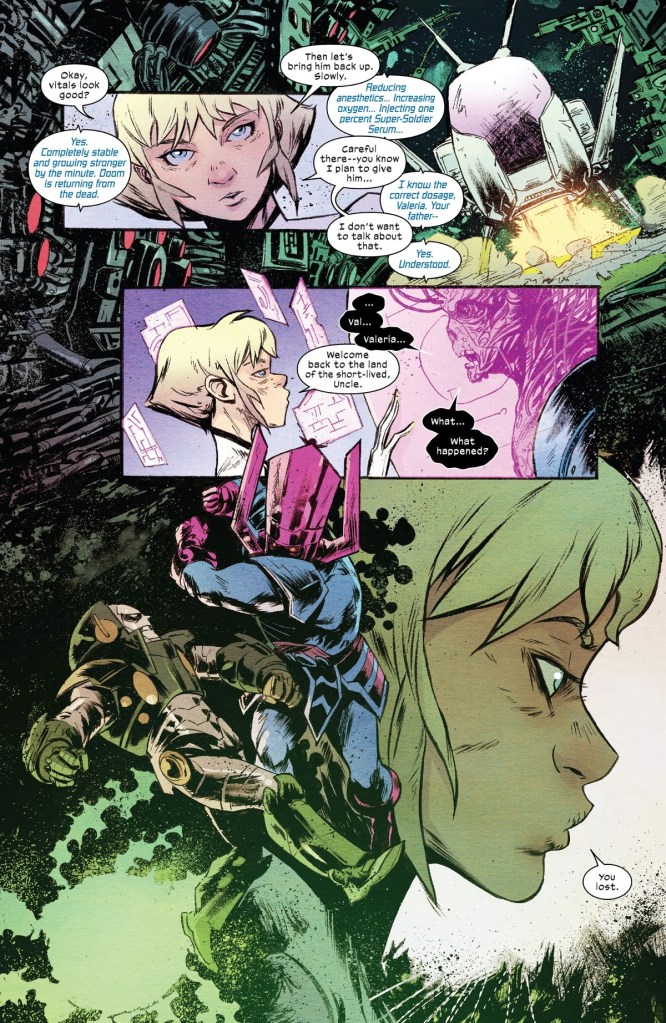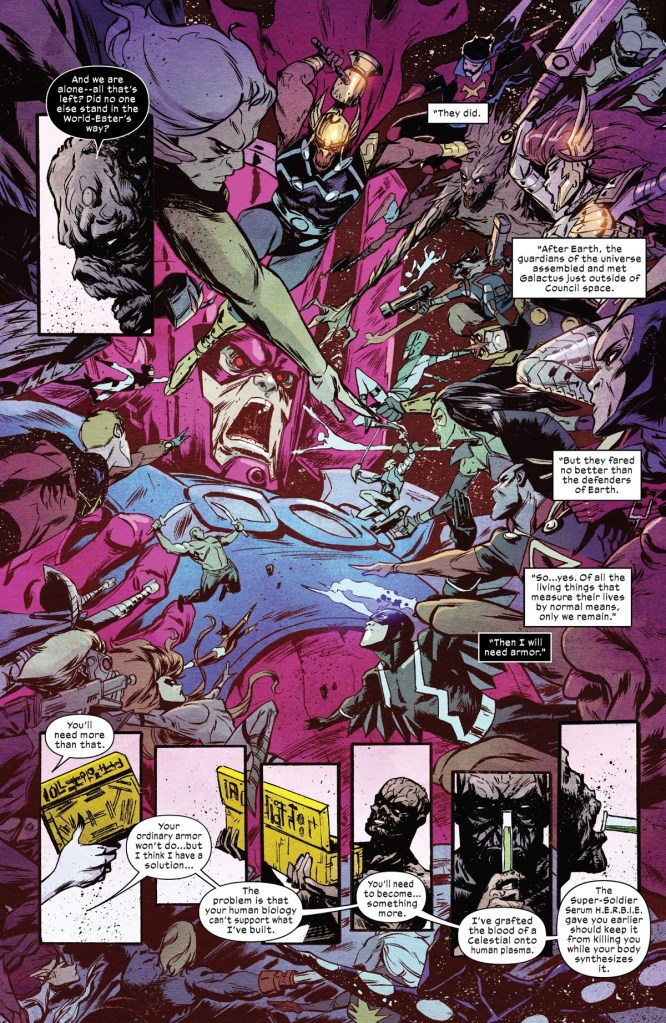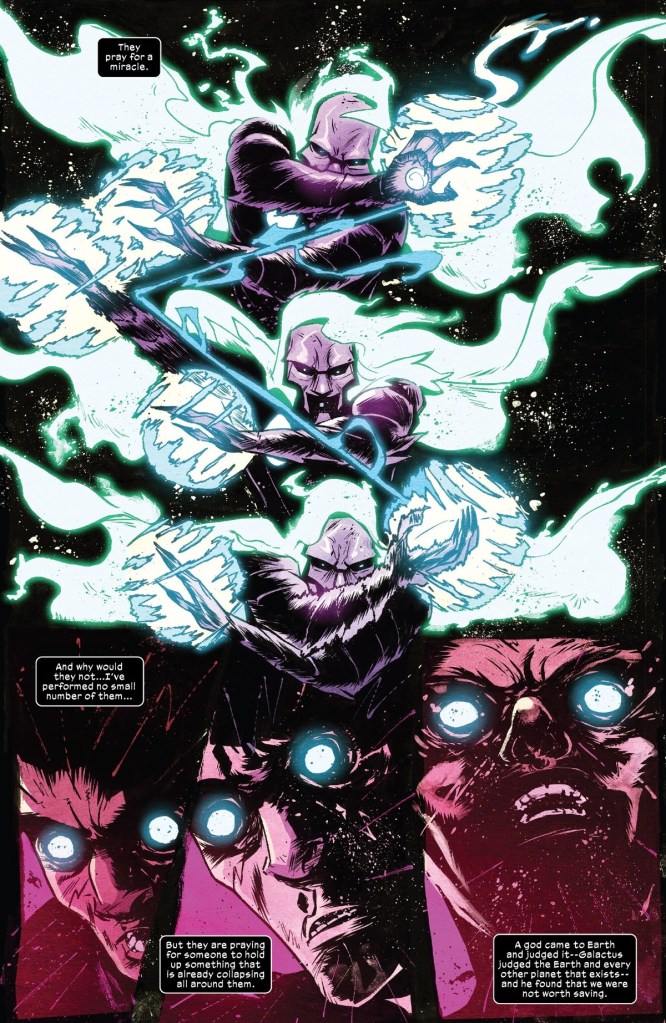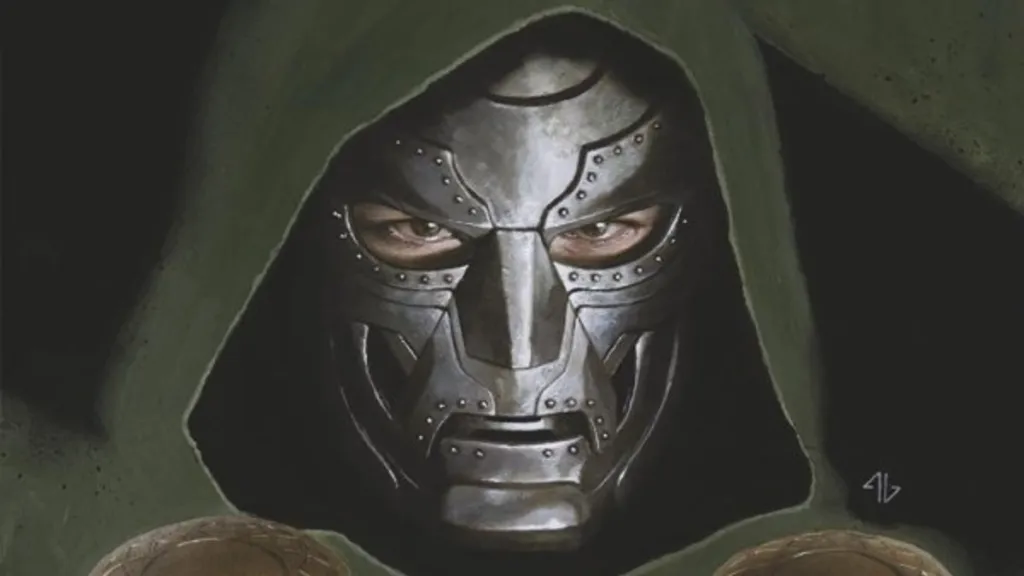What line separates heroes from villains? Vanity? No, for there are heroes as prone to hubris as any evil-doer. Intentions? No, for Hell’s road is paved with good intentions. Such philosophical musings lie at the heart of Doom #1, which depicts a Marvel Universe where Doctor Doom stands as the last hero in existence.

Doom #1 opens at some point in the not-too-distant future. A comatose Doctor Doom is retrieved from deep space, where a spell preserved his life even as his armor failed. He is rescued by Valeria Richards, who informs her amnesiac godfather (and the audience) of what has happened.
The short version is that Galactus seemingly went mad and began devouring everything. Unwilling to wait as Mister Fantastic rallied Earth’s heroes, Doctor Doom faced Galactus with a giant mecha version of his power armor. Both plans failed, but only he and Valeria survived the destruction of Earth. Now, the whole universe is threatened, and only Doom, with an arsenal assembled by his loyal goddaughter, has any hope of saving their reality.
Why Doctor Doom as the Last Hero Works
Victor Von Doom is one of the most fascinating characters in all of Marvel. Nominally, he is an antagonist, having been introduced as the archenemy of Mister Fantastic. He is proud, arrogant, and prone to acting without considering the consequences of his actions. The same, however, can be said of Reed Richards.
Indeed, there are only two real differences between the characters, historically. The first is that Doctor Doom, for the sake of the world, has put aside his grudge for the greater good. The second is that while both have built devices that have threatened the world, Doom did it on purpose. (Seriously. How many Fantastic Four plots boil down to “Reed builds a thing, and it goes wrong?”)

Building off of the Fantastic Four run of Jonathan Hickman, Doom #1 explores this idea and the idea of heroism itself. Doctor Doom has heroic traits. This, paradoxically, makes him all the more compelling as a villain. Yet this one-shot strips him of all the things that define him as a villain, leaving him as a man, with an adoptive daughter, facing impossible odds for no reason other than that someone should.
The script makes it clear that victory is impossible. Even should he triumph, there will be nothing left for him and Valeria but an empty, lifeless void. There is nothing to rule. No hope of rebuilding. No accolades from a grateful populace.
What use is an Avenger when there is nothing left to avenge?
Still, he persists. For he is Doom, and he can do nothing less. Even in the face of total universal annihilation.

Doom #1’s Art Reinforces Its Bleak Concept
The art of Sanford Greene is as Kirbyesque in its scope as his story. There are multiple epic battles between Galactus and various cosmic beings spread across a series of splash pages. Yet there is an aura of dark decay about Greene’s pencils, further enhanced by the muted color palette he and Rachelle Rosenberg utilize.
The end result is an underlying sense of ennui common to Jack Kirby‘s New Gods work. Every visual imposes the weight of ages and the futility of defying the universe on the reader. This makes Doom’s decision to do so all the more powerful.
The only flaw of Doom #1 is that it is somewhat heavy on its exposition. Too much of the early issue is devoted to Valeria explaining things Doom should theoretically already know for the benefit of the reader. Despite this, the narrative and art are compelling, making this issue a must-read for any Marvel fan who ever argued that Doctor Doom might be a hero.
Grade: 5/5.
Doom #1 is now available at comic shops everywhere.










